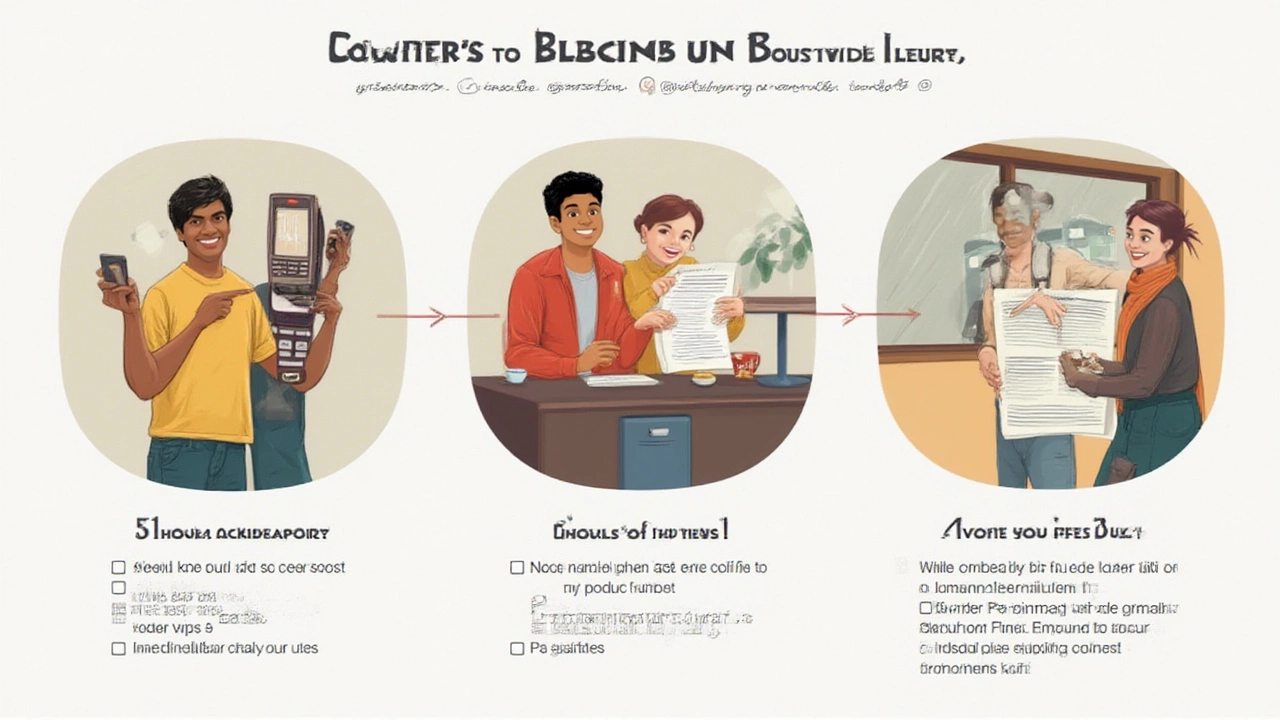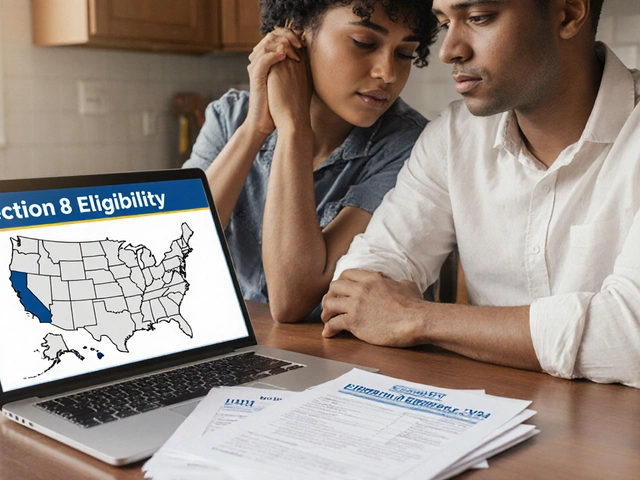How to Pay for Property Registration in NYC: Step-by-Step Guide

Picture this—you’ve just closed a deal on a brownstone in Brooklyn or a sleek condo in Manhattan after months of house hunting and paperwork stress. You’re buzzing with excitement, maybe a little nervous, holding that pen like a wand, ready to snatch your slice of New York’s iconic skyline. But then your lawyer drops it: “Time to talk about property registration.” Suddenly, more forms, fees, and official visits flood your mind. Registering property in NYC is one of those infamous rites of passage for homeowners—an unavoidable step with a reputation for bureaucracy. Mess it up or skip a payment, and you could face penalties, late charges, or even complications with ownership. Want to sidestep the headaches and know exactly how to pay for property registration in NYC? You’re in the right place.
Understanding NYC Property Registration and Why It Matters
Before we jump into step-by-step payment, let’s get something straight—property registration in NYC isn’t some superficial city hoop you can just duck under. It seals the deal between you and your piece of Gotham. The process covers all residential and commercial property types: apartments, townhouses, brownstones, co-ops, condos—both pre-war charmers and shiny new builds. Once you buy or transfer a property, the title needs to be registered with the city, specifically through the New York City Department of Finance (DOF).
Think of registration as updating NYC’s giant, iron-clad address book—the Automated City Register Information System, or ACRIS. Without a registered deed, legally you’re not the property owner. Not even if you have the keys in your hand and the moving van ready. ACRIS keeps track of every legitimate property transfer, mortgage, lien, and condo declaration going back decades. If your name isn’t on file, you can’t sell, refinance, or, heaven forbid, win in court if a dispute pops up.
Here’s an interesting tidbit—out of all US cities, New York stands out for having such a centralized, detailed records system. As of 2025, about 3 million individual property records zip through ACRIS annually. That’s not just houses changing hands, but all the little legal nitty-gritty tied to ownership. Want a fun fact to share at your next open house? In 2023 alone, over 40 billion dollars’ worth of property was legally registered and transferred in NYC. No surprise, given the appetite for high-stakes real estate deals here.
But there’s more than just pride-of-ownership at stake. Registering property and paying the right fees is a legal requirement—you face fines for late filing, and title insurance can flat-out refuse to cover an unregistered title. And if NYC’s bureaucracy feels endless, missing steps just means extra headaches and delays.

Breaking Down Payments: What You Need, Where It Goes, and How To Do It
So, you’re ready to register. What exactly will you pay, why, and where does your hard-earned cash go? Property registration fees in NYC aren’t just one flat payment. They’re a collection of charges, some payable by the buyer, others by the seller. The heavy hitters are the deed recording fee and the Real Property Transfer Tax (RPTT)—these make the city smile (and your wallet shrink). The fee varies based on price, property type, and even on what borough you’re in. For most residential homes under $500,000, you can expect to pay a deed recording fee of around $125–$200. The recording fee for condos or co-ops often lands in the same range. But if your property tips above $500,000, expect that bill to climb higher.
The Real Property Transfer Tax is the real beast. For deals up to $500,000, the tax stands at 1% of the sale price; for anything above, it rockets to 1.425%. Commercial properties? That fee starts at 1.425% up to a whopping 2.625%. Toss in the New York State Transfer Tax at 0.4% and, sometimes, the Mansion Tax (1% on transfers above $1 million), and your calculator’s barely keeping up. Plenty of buyers in 2024 were caught out by this creeping total, thinking only of the purchase price—not the taxes tacked on at closing.
Paying these isn’t as simple as Venmo or a tap of your phone. You’ll need certified checks, money orders, or electronic payment through the DOF’s online portal. If your lawyer or title company is handling things (which most do), they’ll often bundle all taxes and recording fees together and pay on your behalf. But keep an eye out: if you’re missing a document, like form TP-584 or the RPT, you could be sent home to try again—delay city. In 2023, about 13% of submissions were kicked back because of incomplete or incorrect documentation. Not a stat you want to join.
To make your life easier, here’s a basic checklist of what you’ll need when paying and registering:
- Original signed deed
- Completed and signed transfer tax forms (RP-5217NYC, TP-584, and RPT forms)
- ID from all parties involved
- Certified check or proof of electronic payment for all required fees and taxes
- If a co-op: Stock certificate, proprietary lease, and co-op board approval (for co-ops only)
You (or your attorney/title company) submit these in person at the City Register’s office or via ACRIS e-Submit. Most lawyers swear by e-Submit for speed, but you can still file old school if you prefer a face-to-face. The city isn’t picky about who pays—as long as someone does. Payments need to clear before the deed gets stamped into the record. If you’re pressed for time, ACRIS also accepts pre-scheduled appointments, so you’re not stuck in a loop of waiting rooms.
One last money-saving tip—a handful of first-time homebuyer exemptions or programs can trim down what you owe. Back in 2023, hundreds of first-time buyers snagged partial RPTT exemptions just by ticking the right box. Always check if you qualify for any programs or reduced fees before ponying up the full amount.

Common Speed Bumps and Smart Tips for NYC Property Registration Payments
You’ve got your documents and your certified check—what could go wrong? Turns out, there are a few classic trip-ups that snare even the most organized buyers. For starters, double-check those forms before you submit. If there’s even one typo in the property address or an outdated owner’s name sneaking onto a form, NYC will reject your paperwork. It’s not a myth: in early 2024, delays related to clerical errors pushed more than 10% of deals past their closing deadlines. That’s brutal if you’re trying to move in or meet a mortgage timeline.
Another big one—mismatched payments. If the amount on your check is off by even a few bucks, or you haven’t included one of the necessary tax payments (hello, Mansion Tax!) your registration sits in limbo until the mess is cleared up. Title companies are usually pros, but if you’re doing this solo, use the Department of Finance’s online fee calculator before cutting a check. The calculator’s updated regularly, especially after law changes in early 2025. Don’t rely on last year’s numbers—you might end up short.
Beware of the document submission order. The City Register expects certain forms in a specific sequence: deed first, then tax documents, then payment confirmation. Out of order? Rejection city. If you’re scanning and uploading electronically, use high-resolution scans only. Blurry or cut-off documents are returned, and you’ll have to start over. Double-check signature pages. In-person, make sure you get a stamped, dated receipt—the city respects receipts. Keep digital copies just in case.
And don’t forget about week-by-week office schedules. City offices still close for unexpected holidays or events—think weather, major parades, or, as last year taught us, city tech outages. In 2024, a small tech crash delayed thousands of submissions by several days. Check ACRIS notices before heading to an office or submitting online.
If you’re handling this with a lawyer or title company, stay informed. Insist on regular updates, copies of everything filed, and proof of all payments. Some buyers let this slide and end up lost in the shuffle if a paralegal switches firms or emails vanish. After registration, keep your file numbers handy—you’ll need them for any future refinance, property dispute, or to claim tax exemptions.
Seasoned buyers in NYC keep a little checklist magnetized to the fridge for future moves. If you’re a first-time buyer, consider chatting with your lawyer about getting pre-filled forms, or doing a dry-run walkthrough online—sometimes the title company will mock up draft forms for you to review. Saves time, costs, and stress when the real thing needs to be filed.
One last trick: For buyers looking to avoid costly mistakes, check the "Recorded Documents" tab in ACRIS a few days after filing. If your deed isn’t showing, call your lawyer or the City Register. Catching small mistakes early saves a bucketload of hassle later. And don’t hesitate to ask city staff questions. They’re busy, but a polite ask is often all it takes to clear up confusion—especially if you’re juggling forms and payments in a crowded office with your new landlord breathing down your neck.
Taking time to line up all your ducks for property registration NYC makes your closing day feel less like a slog and more like the start of a new adventure. Trust me, nothing feels quite as satisfying as seeing your name in the city’s official records. Plus, the dog’s already picked out his favorite window to watch the world go by. Happy registering!









Write a comment